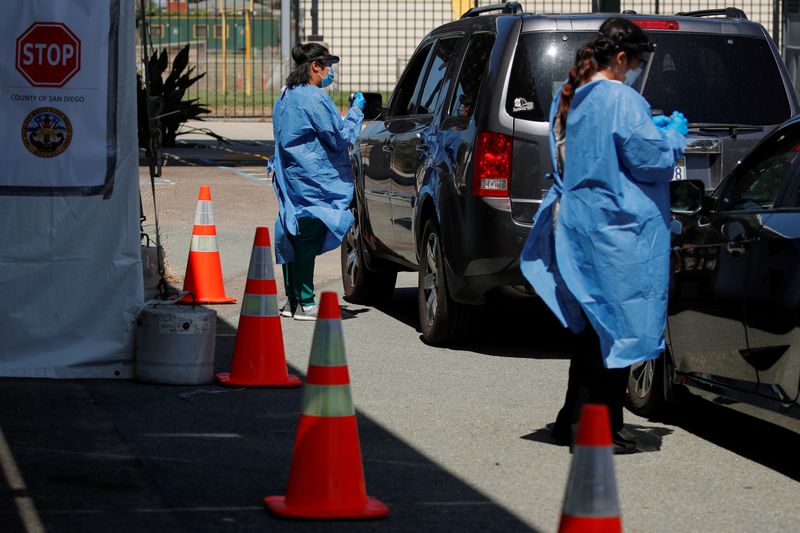This post was originally published on this site
https://i-invdn-com.akamaized.net/trkd-images/LYNXNPEG6L1MA_L.jpg
NEW YORK (Reuters) – More than half of U.S. companies surveyed by benefits company Mercer are starting COVID-19 contact tracing programs in their workplace with employees venturing back to offices even as new cases soar nationally.
Countries such as South Korea have managed to contain the disease in part by tracking down and isolating everyone who has been in contact with an infected person.
But the premature reopening of many states’ economies that led to huge spikes in COVID-19 cases, testing delays, and a shortage of trained contact tracers have stymied tracking efforts in the United States.
The lack of a coordinated federal effort that has left U.S. states to manage all aspects of contact tracing has also contributed to the need for large companies to take matters into their own hands.
Of the more than 300 companies that took part in the survey, 54% are planning to implement a contact tracing program or had already started one, Mercer said.
Among those who responded, the survey found that 42% of companies said they are using existing employees to do contact tracing and 9% are training employees now. In addition, about 4% said they will be hiring more staff and/or a vendor for their contact-tracing efforts, and about 3% plan to use a smart phone app or wearable device to track employee contacts.
“Time is really, really important here given how this virus spreads exponentially,” Mercer health practice co-leader David Zieg said.
Employers are stepping up as U.S. public health agencies struggle to keep up with new cases.
HUNDREDS OF THOUSANDS OF TRACERS NEEDED
COVID-19 has claimed the lives of more than 142,000 Americans, and infections rates, hospitalizations and deaths are all on the rise again in many U.S. states, forcing President Donald Trump on Tuesday to finally acknowledge the crisis could get worse before it improves.
It has been estimated that hundreds of thousands of contact tracers would be needed in the United States to track down those exposed to the virus and garner the kind of results seen in South Korea and elsewhere. NPR surveyed all 50 states in June and found that about 37,000 contact tracers had been hired.
Many states reopened without reaching benchmarks for doing so safely, such as two weeks of declining COVID-19 cases and having adequate contact tracing in place. Long delays in getting back test results has added to the problems.
California, the most populous U.S. state, is averaging more than 9,000 new cases per day and has had to reclose some businesses. It has trained about 3,600 state workers to do contact tracing, about one-third of whom have been deployed with another 300 to be added this week, a California Department of Health spokeswoman said on Wednesday.
In workplace tracing programs, Zieg said, employers should move quickly to interview the potentially infected employee by phone to determine close contacts in the office, notify the other employees about their exposure, and ask them to self-quarantine, even if the employee does not yet have test results.
The employer should also reach out to local public health authorities for more guidance as needed, he said.
U.S. companies closed their workplaces to all but essential staff in March due to the global pandemic.
While most states have since begun reopening businesses, many workers have not yet returned to their offices. For those who have, workplace safety measures include a combination of temperature checks, face covering and social distancing.
Contact tracing combined with other safe workplace practices can reduce workplace transmission by 85%, according to Neal Mills, chief medical officer at healthcare benefits group Aon (NYSE:AON).
Having contact tracers in place can help bring workers back into the office by reassuring them that all possible safety precautions have been put in place, Mills said.
“They have to have these contact tracing pieces ready to go right now since the public health agencies might not be ready,” Mills said.

